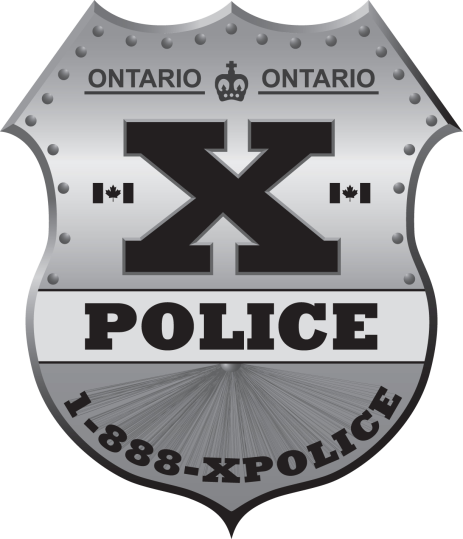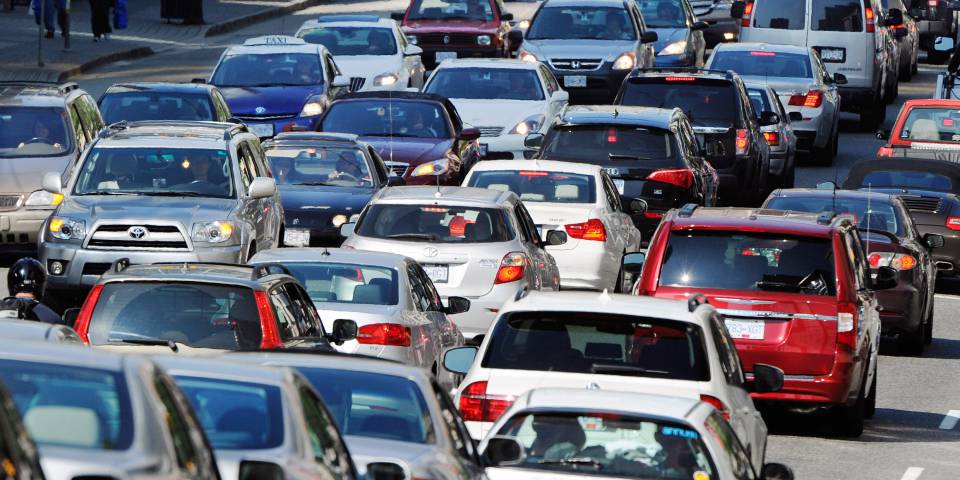
While our largest cities may seem horrible for traffic, a recent study finds that, on a world scale, they could be much worse
Ask anyone who drives in Vancouver, Montreal or Toronto to describe the experience and “crippled” comes up as a fitting adjective. No wonder some people want autonomous cars — driving in crowded cities can be a maddening monotony of miniscule movements, a task better left to computers than our big, creative brains.
But not all big cities suck at dealing with traffic and the mobility of its citizens. Some are surprisingly good at getting people around. In Europe, online retailer kfzteile24, one of the largest German online shops for car parts and accessories, examined 500 cities around the globe, circling those with the highest number of registered vehicles in their initial scope. Their goal was to find the 100 best (and thus worst) cities to drive in.
kfzteile24 then whittled down the list to 100 cities based on which ones had the most available traffic data, so the study is skewed to those major urban centres that tend to keep track of these things. For example, even though Calgary and Edmonton are roughly similar, Edmonton doesn’t make the list but Calgary does. Don’t bother looking for a ranking for small cities such as Moose Jaw or Thunder Bay, they simply weren’t big enough.
Still, the kfzteile24 study provides an interesting look at the five Canadian cities that made the list. It takes into account nine parameters. They include: congestion levels based on data from TomTom, public transport options, the cost of parking, cost of gasoline and diesel, air pollution, the average speed between the city centre and the international airport, road fatalities, road quality and road rage. From those data points, it distilled them to come up with its ranked list of 100 best and worst. Globally, Düsseldorf, Germany ranked No. 1 while Kolkata, India, ranked worst overall and last at 100.
In Canada, only Calgary, Alberta, presented well. Congestion caused by “temporary” construction work was not taken into account for the study, so Toronto and Montreal got a boost they don’t currently deserve. Still, of the five Canadian cities, all fall within the top 50 in the study, the lowest-ranked Vancouver scored 48 out of 100. Put another way, Vancouver ranks as the worst place to drive in Canada among its biggest cities but middle of the pack compared with the rest of the world, according to kfzteile24. That’s followed by Ottawa as the next worst, Toronto in third place, Montreal at second and finally, Calgary, as the best Canadian city in which to drive.
Here’s a breakdown of how each Canadian city fared, from best to worst.
1. Calgary, Rank 10/100
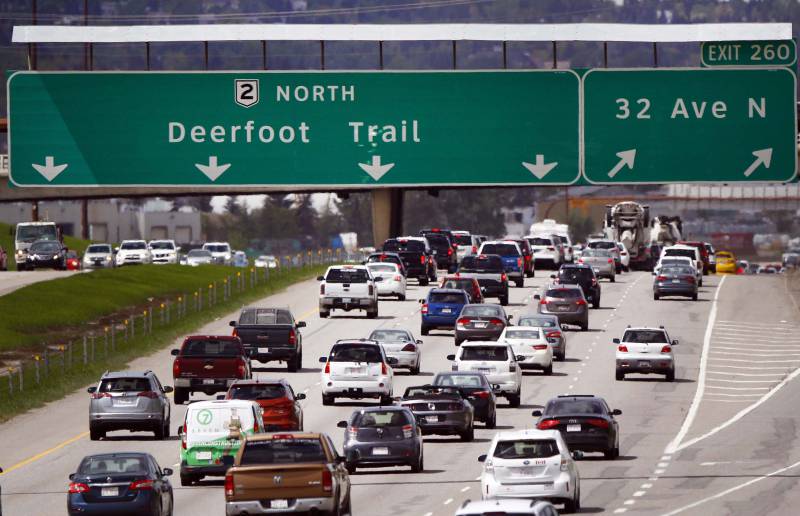
Calgary’s congestion was ranked among the lowest of Canadian cities, with a score of 20 out of 100, only 1 point behind the top three cities in world. It also scored the cleanest air. Calgary might have done better overall were it not for its expensive downtown parking, where the Alberta city ranked more expensive than London, England, but better than the most costly place to park, New York City. Calgary also ranked relatively poor on the road rage scale, also knocking it back. Road rage was based on the results of a poll conducted in each of the cities that asked more than 1,000 drivers to rate their perception of road rage, combined with the number of reported incidents in the past 12 months. Still, Calgary’s final score put it in the top 10 best cities in the world when it comes to motoring.
2. Montreal, Rank 13/100
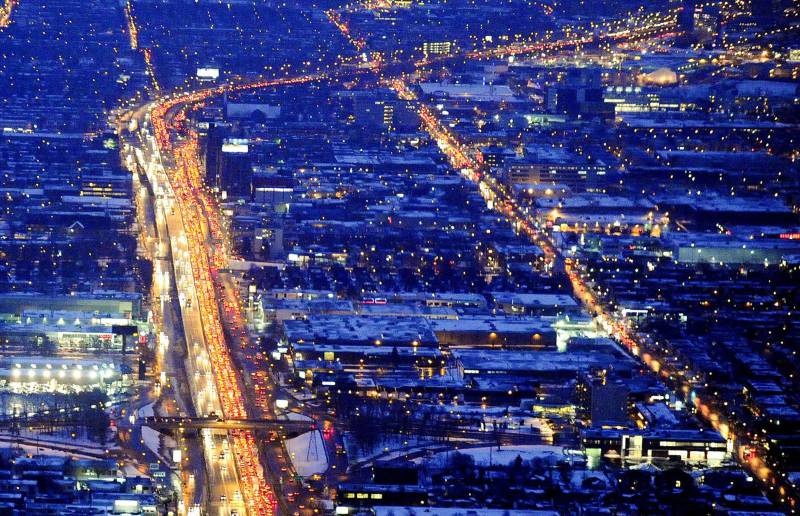
Drivers in Montreal, long frustrated with the nightmare that is the Champlain Bridge, the war zone known as Highway 720 or the gridlock known as route 40 or 15 will be stunned to see it ranked as the second best major city in Canada to drive. Despite a terminal case of construction, Montreal’s ranking in the kfzteile24 study comes, in part, from its very good score at minimizing road rage, but also for its Métro subway and transit system that helps take a lot of cars off the road.
3. Toronto, Rank 14/100
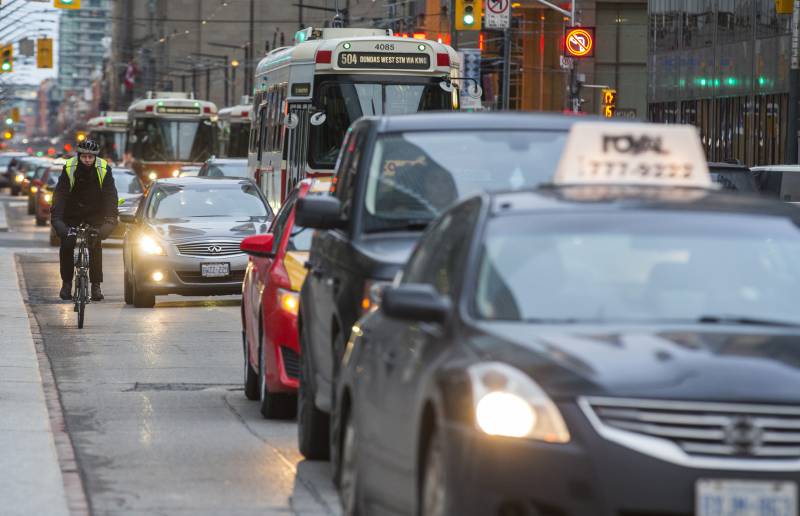
A decent subway and public transit system, comparatively low price of fuel (during the study period in August when gas was cheapest its been in years), modest downtown parking costs and fairly quick speed to Toronto Pearson International Airport all helped the Big Smoke achieve its third best Canadian city rank, despite its problems on the 401, 400, Don Valley Parkway and Gardiner Expressway and numerous other main arteries. Road quality was slightly better than average at 31/100, according to the study, although the countless motorists who have replaced tires and suspension bits because of Toronto’s roads will no doubt disagree.
4. Ottawa, Rank 22/100
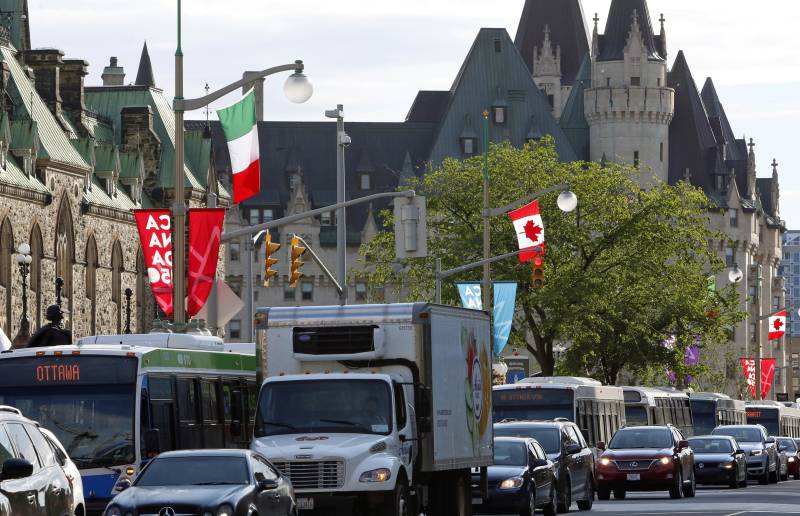
Anyone who regularly drives in Toronto and Ottawa will happily choose Ottawa traffic over Toronto’s; but Canada’s capital still lacks a subway system, though an LRT route is under construction and expansion plans are in the works. Indeed, Ottawa ranked better than Montreal and Toronto on the congestion score and parking costs, but had poorer quality roads than Toronto, and the subway system is still more than a year from seeing its first trains.
5. Vancouver, Rank 48/100
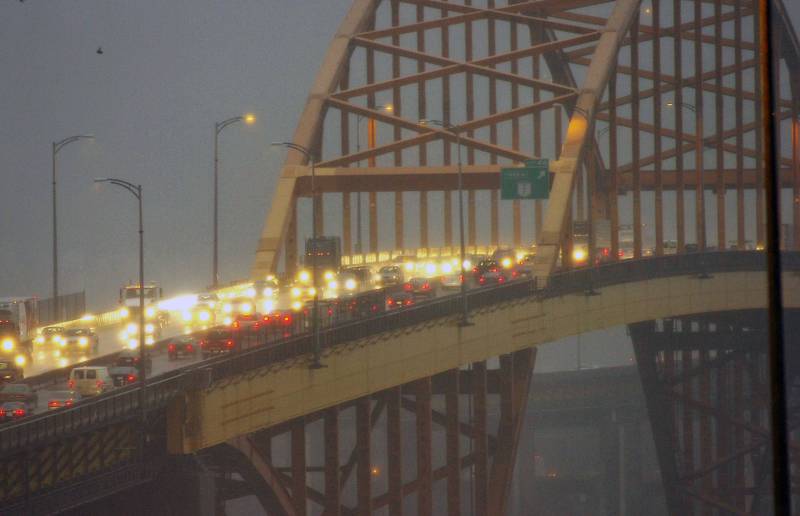
For regular commuters along Highway 1, Vancouver’s last place rank in Canada will be no surprise. Worse than London, England, Vancouver’s rating comes from its high congestion, partly due to a lack of major north south or east west arteries but also the sheer volume. It’s also hurt by the usually slow crawl to the airport, but helped by its low pollution compared to other major cities. Vancouver ranked fourth overall behind Calgary and Ottawa as having the least air pollution.
Details on the study’s data collection and other city rankings can be found here.
Source: Driving.ca
